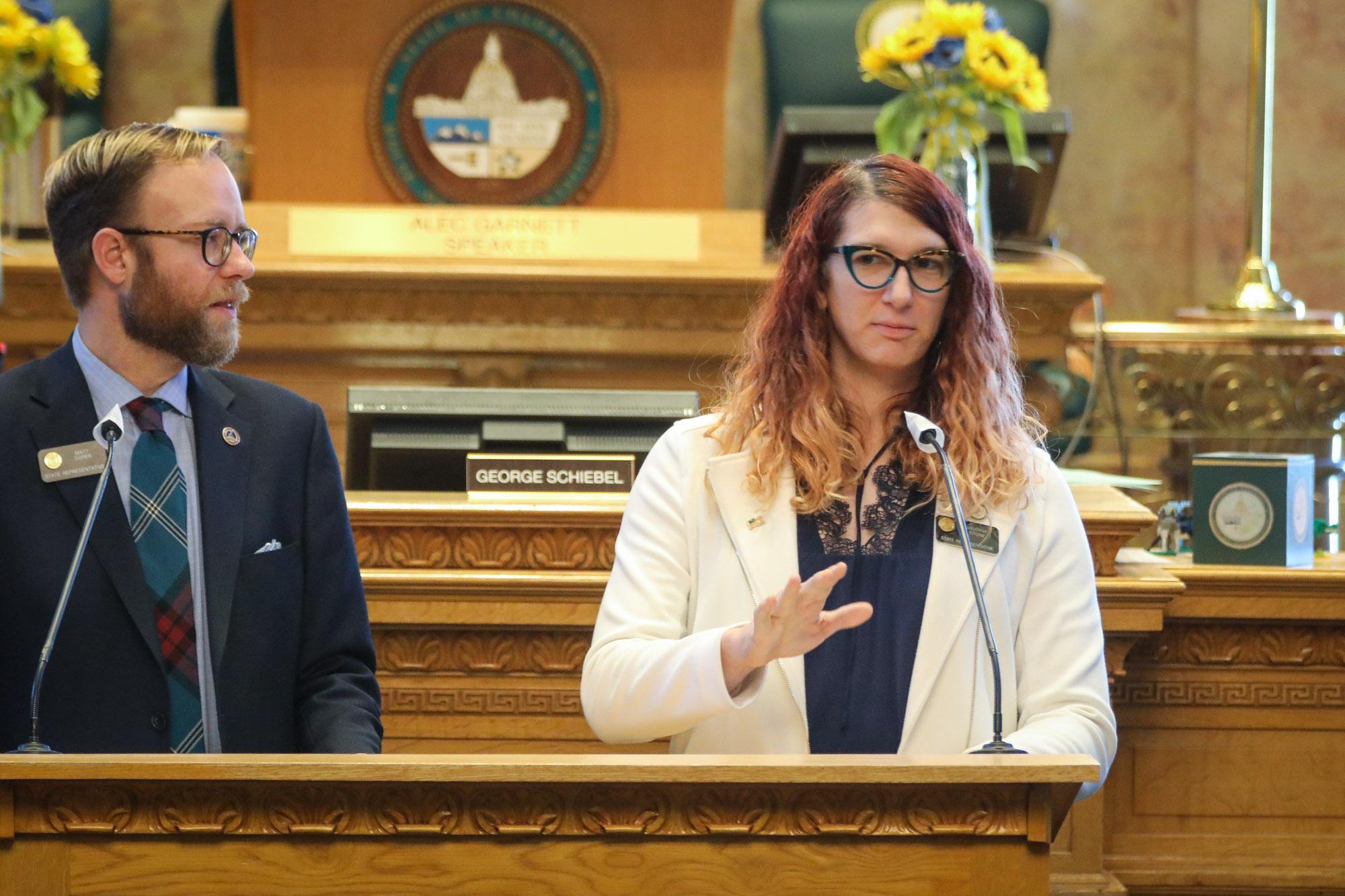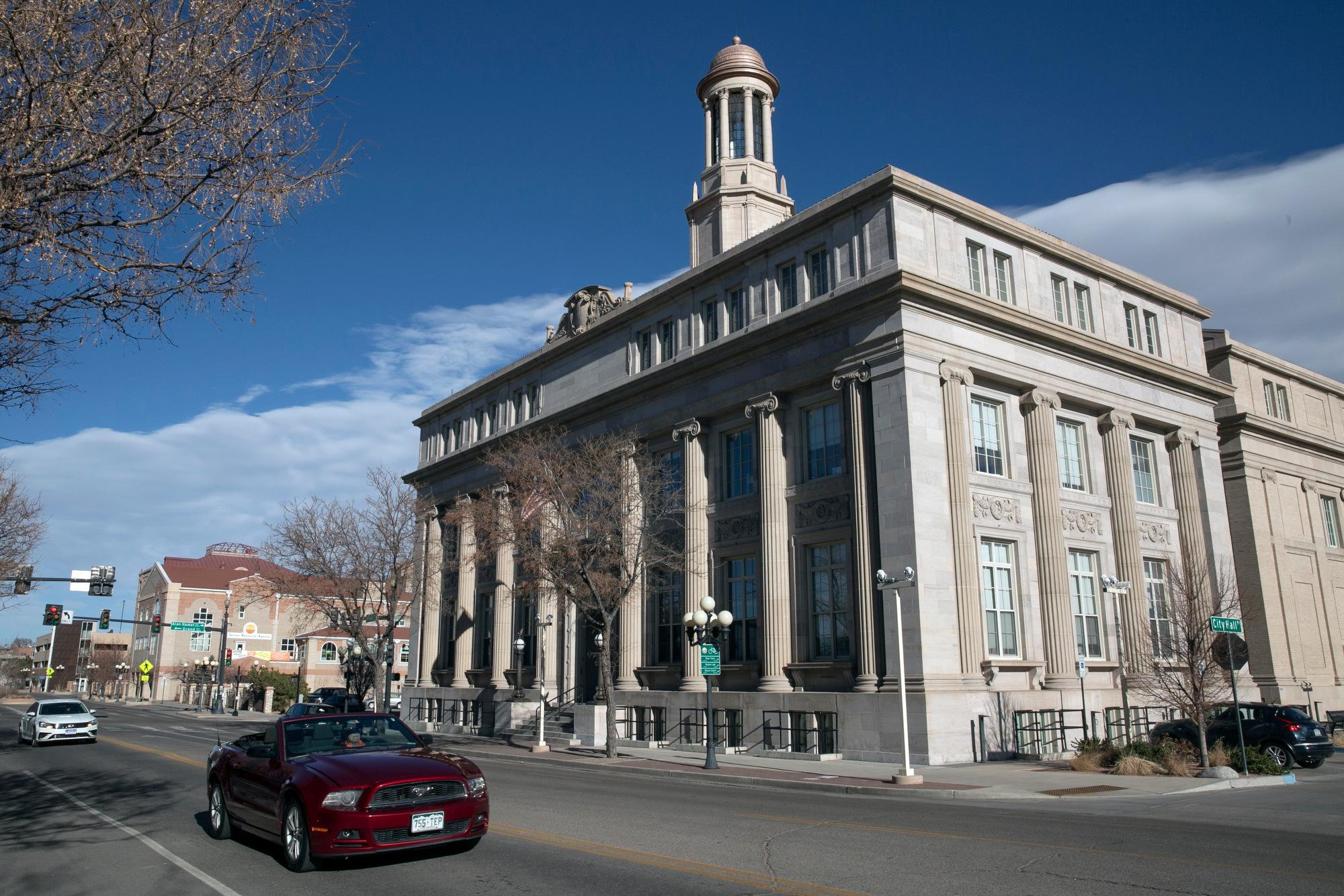
A bill at the statehouse aims to allow sex workers to report violent crimes — without fearing that they’ll be charged with prostitution.
Pasha Ripley, an advocate and former sex worker, told lawmakers last week that sex workers are victims of despicable violence because they can’t safely go to police and other authorities.
When Ripley was violently assaulted by a client in August 2018, there was “no question” of going to the police because she feared being charged herself, she said.
She had returned to sex work out of financial desperation, she said. During a visit, she said, the man grabbed her by her hair, beat her with a belt and his hand, and raped her, leaving her covered in bruises and in need of stitches.
“The last thing he said when I walked out the door was, ‘Who are you going to tell? What are you going to do?’ Because if I go to police, it’s likely that I’ll be arrested. And that’s just not right,” she told lawmakers during a hearing last week.
“That's just one incident of many. It happens to be the one that was so bad,” she added later.
The bill Ripley was advocating for, HB22-1288, says that people can’t be charged for prostitution if police obtained the evidence about their sex work based on the person reporting or seeking help with a violent crime. The immunity also applies to people reporting human trafficking and stalking.
“Whether they’re being forced to (engage in sex work), or trying to put food on the table for the family, these folks are in danger every time they engage in this activity,” said Democratic state Rep. Brianna Titone. “Whatever the reason a person is engaging in sex work, they should never have to become a victim of a heinous assault or worse. And when it comes down to it, will we allow these violent crimes to happen to a vulnerable group of people who are afraid to speak out?”
Titone cosponsored the bill with state Rep. Matt Soper and state Sen. Jim Smallwood, both Republicans, and state Sen. Rhonda Fields, a Democrat. It passed the House Judiciary Committee last week, drawing tears and smiles from Titone and the witnesses. The bill passed the full House on Monday. Both votes were unanimous. It heads next to the state Senate.
FBI data shows that prostitution-related charges are less common in Colorado today than in the 1990s, but hundreds of people still may be charged in a typical year — and encounters with the police are constant, even if it doesn’t often end in a citation, said Tiara Kelley, another witness for the bill.
Kelley said when she reported to police in Florida that a man assaulted her in the course of sex work, they downplayed it and discouraged her from pursuing the case.
“It was just basically, ‘what did you do to deserve this? Why, why did this guy do this to you?’ And they convinced me not to press charges, and told me that nothing would happen if I did anyways, and sent me about my way and didn't even call an ambulance. Didn't go looking for this gentleman. Didn't take a report. Didn't write a single thing down,” she said.
Ripley, who leads the group Red Light Resources International, said that Rep. Titone was the first lawmaker to take her seriously.
“I hope this bill will become law and it will be a deterrent,” Ripley said. “It will allow people to report, but also it will deter perpetrators because they know they can be arrested.”
More coverage of Colorado's 2022 legislative session:
- Universal free school lunch is set to expire. Some Colorado lawmakers want to keep it going
- Should Colorado punish American businesses that continue to work in Russia? One state lawmaker calls for action
- A plan to slow rent increases at Colorado mobile home parks lands at the Capitol
- Proposal to give physician assistants more power fails amid bipartisan opposition and pressure from doctors









